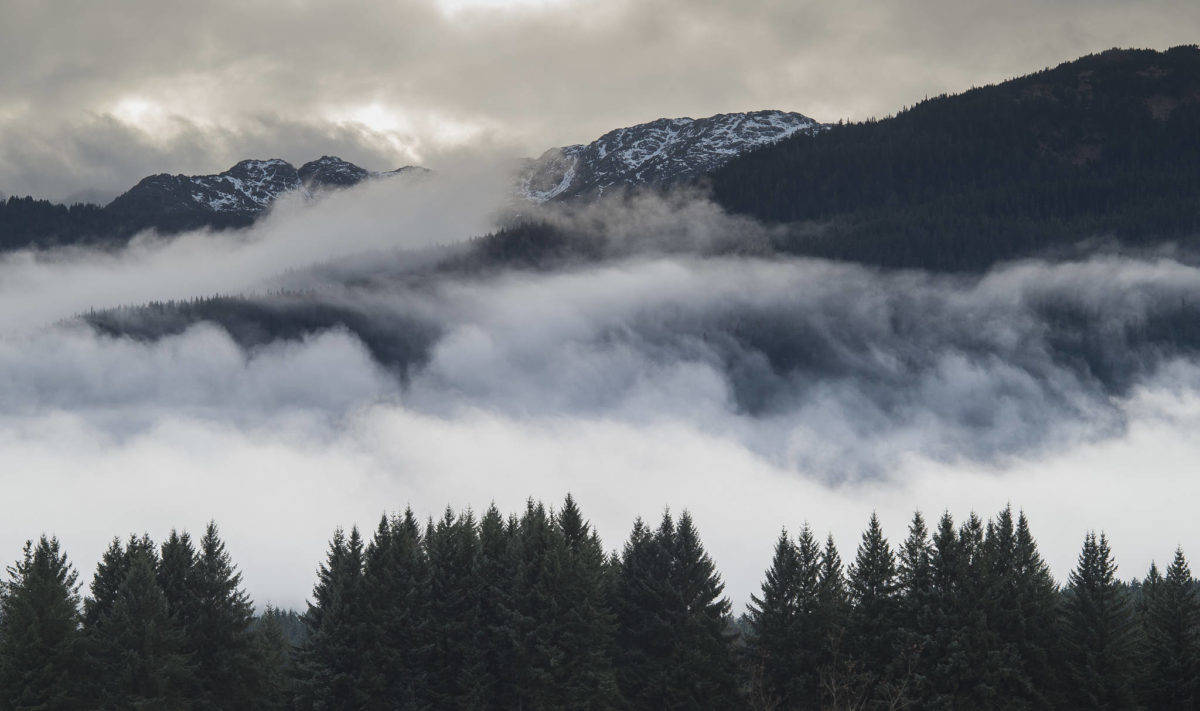I am not against logging. And call me hopelessly naïve but I am for living-wage jobs in Southeast and all of Alaska (don’t worry, this is not the beginning of my gubernatorial bid). I support the logging of second-growth in Alaska if it makes economic sense.
But last weekend while perched above a granite cliff near Dyea, it occurred to me that the Tongass is not meant to be clear-cut, not now, not in the past, not in the future. Industrial logging of Southeast’s old growth never made any money. We are too remote, too geographically extreme — more practically, our trees take a long time to grow back. We, you and me and everyone who pays taxes in this country, subsidized every clear cut board foot harvested on public land here, and now no one is any better off.
What we face in Alaska is the recycling of ideas about what this place is and what it means. Revoking the Roadless Rule, recycling the idea that our commonly owned public lands — in this case the last remaining acreage of uncut old-growth woods in a temperate forest in the world — best serve the people of this place as a raw commodity, clear cut then likely shipped to Asia for the creation of particle board, is beyond outrageous.
Why is it when our congressional delegation looks at the Tongass they don’t talk about its astonishing value for our billion-dollar tourist industry? Sublime, uncut forest is exactly the wilderness experience two million-plus people seek out each summer when they travel here by cruise line. And after the warmest summer on record in Alaska, it seems very conspicuous that our elected leaders best idea for the nation’s largest National Forest doesn’t include mention of the incredible value standing trees, and more generally plants of any kind, have as carbon sinks. And what of the endemic Sitka blacktail deer or Shiras brown bear or five types of Pacific salmon, all totally dependent on our forest canopy? Blacktail use trees as protection during the long cold winter. When we clear cut the Tongass, we leave one less place for deer to find shelter, and one less wild food source for those of us who subsist to eat. Has anyone else noticed that we have a food security issue in Southeast? Let’s not threaten our subsistence for short-term gain.
Even with facts as objective as these, what do our leaders recommend? Mow it again. Drill it again. Mine it again. Alaska is a resource cornucopia of bottomless proportions and the only sensible management for Seward’s folly is to extract her resources as quickly as politically possible.
And there are many other recycled ideas afoot. Take drilling in ANWR — we showed restraint 70 years ago with the creation of the Arctic Refuge. And now because of fracking there is a surplus of domestic oil. We have more than enough. We’re witnessing the sixth major extinction in the history of the Earth. Let’s leave the hydrocarbons in the ground and continue providing calving caribou refuge — they don’t have anywhere else to go! Or what about the proposed large scale pit mining in Bristol Bay’s headwaters? Why risk the last great wild sockeye run in the world so a multinational corporation can suck out that last little bit of Alaska’s fragile salmon marrow but not pay taxes here?
The time has come to speak up. Our society is headed off a cliff, an epic fail. Join me at the voting booth. And if that doesn’t work let’s take the lead from Greta Thunberg and the children of the world and take to the streets. I am Alaskan. I was born here and will eventually die here. My short human life is but a fraction of that of a Sitka Spruce. Most of the standing Tongass old-growth outdates our United States. Freedom is not free. Let’s vote for the trees and stop recycling bad ideas.
• Forest Wagner is an Assistant Professor of Outdoor Studies at the University of Alaska Southeast and lives in Auke Bay. Mr. Wagner is a member of the University of Alaska Southeast Sustainability Committee. “Sustainable Alaska” is a monthly column, appearing on the first Friday of every month. It’s written by UAS Sustainability Committee members who wanted to promote sustainability. The views expressed here do not necessarily represent the views of the University of Alaska Southeast.

